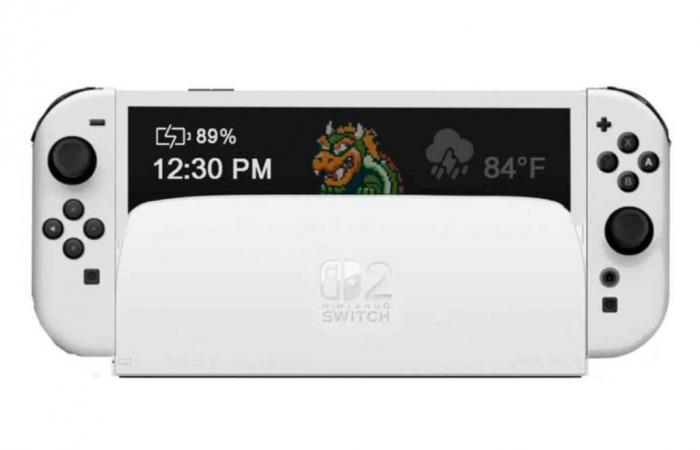Nintendo is expected to release a new console in 2025 and could revolutionize portable gaming once again. The second generation Switch (or Switch 2) is highly anticipated and rumors are rife about the features of the new console. Eight years after the first Switch, many improvements are to be expected and a boost in performance is to be expected. On the other hand, Big N could have a funny surprise in store regarding the display of its new console.
Adieu OLED, rebonjour LCD ?
The latest information from leaker Deck Wizard, on day of its Switch in 2021. As on smartphones or televisions, the advantages of OLED are multiple on a portable console like the Switch. Blacks are deeper and players have access to better contrast, brighter and more precise colors, faster response times and wider viewing angles.
OLED screens also consume less energy than LCD screens, which helps you enjoy better battery life on your console. Finally, OLED displays do not require a backlight and can be thinner and lighter than LCD displays. So many advantages which explain why Nintendo or Valve have improved their respective consoles by opting for OLED (Switch OLED and Steam Deck OLED).
A step backward that hides good news for the wallet?
Like the first Switch, Nintendo could therefore return to a more classic LCD panel and skip the OLED. At least initially, because we wouldn't be surprised to see the Japanese giant apply the same recipe as with the first generation of Switch. In order to extend the lifespan of its machine, Big N could relaunch a Switch 2 OLED in a few years.
Players used to the OLED screen of their Switch will probably be surprised to switch back to an LCD panel. However, it is still possible to make excellent portable consoles by offering LCD technology. The Lenovo Legion Go, the Asus ROG Ally and even the recent ROG Ally X have very good quality LCD panels.
Although OLED is gaining ground in the market, LCD displays even retain some advantages that still make them relevant. Despite the progress of OLED, LCD is less subject to the phenomenon of “burn-in” (marking) which can leave an indelible mark on the panel. Therefore, the lifespan of an LCD screen is generally longer.
Importantly, LCD displays are cheaper to produce than their OLED counterparts. For consumers, this translates into more attractive prices and Nintendo could therefore limit the price of its new console.
???? To not miss any news on the Journal du Geek, subscribe on Google News. And if you love us, we have a newsletter every morning.






